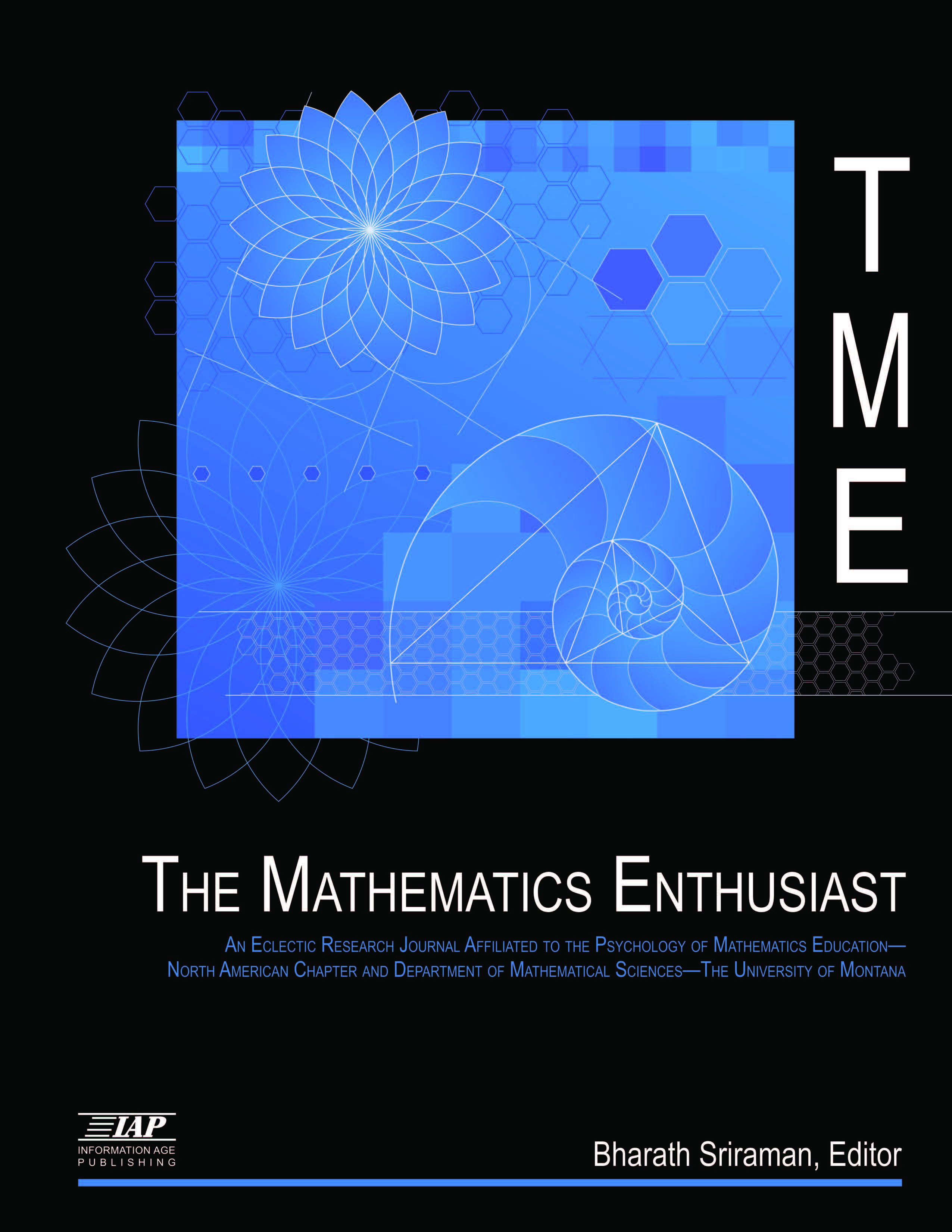
Volume
17
Issue
2-3
Abstract
The purpose of this report is to share a conceptual model useful in the design of professional learning about teaching for university mathematics faculty. The model is illustrated by examples from a particular design effort: the development of an online shortcourse for faculty new to teaching mathematics courses for prospective primary school teachers. How novice mathematics teacher educators grow as instructors is an emerging area of research and development in the United States. At the same time, it is well established that effective instructional design of any course, including a course for faculty, requires breadth first: understanding and anticipating the needs of the learner. Therefore, given the sparse knowledge base in the new arena of mathematics teacher educator professional growth, effective design requires leveraging the scant existing research while also exploring and iteratively refining broad goals and objectives for faculty learning. Only after a conceptual foundation is articulated for what is to be learned and what will constitute evidence of learning, can cycles of design productively examine and test-bed particular course features such as lesson content, structures (like scope and sequence), and processes (like communication and evaluation). In the example used in this report, several researchbased perspectives on learning in/for/about teaching guided design goals and short-course objectives. These valued perspectives informed creation and prioritization of principles for short-course design which, in turn, informed evaluation of faculty learning. With these conceptual foundations in place, design of lessons to realize the goals, principles, and objectives rapidly followed. The work reported here contributes to the knowledge base in two ways: (1) it addresses faculty professional development directly by describing and illustrating a model for supporting instructional improvement and (2) it provides metanarrative to scaffold the professional growth of those who design professional learning opportunities for post-secondary mathematics faculty.
First Page
537
Last Page
582
Recommended Citation
Jackson, B., Hauk, S., Tsay, J. J., & Ramirez, A. (June 2020). Professional development for mathematics teacher education faculty: Need and design. In A. Appova, R. M. Welder, and Z. Feldman, (Eds.), Supporting Mathematics Teacher Educators’ Knowledge and Practices for Teaching Content to Prospective (Grades K-8) Teachers. Special Issue: The Mathematics Enthusiast, ISSN 1551-3440, vol. 17, nos. 2 & 3, pp. 537–582. ScholarWorks: University of Montana. Retrieve (open access) from: https://scholarworks.umt.edu/tme
Digital Object Identifier (DOI)
10.54870/1551-3440.1497
